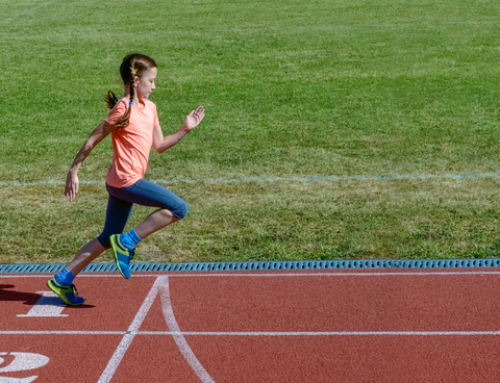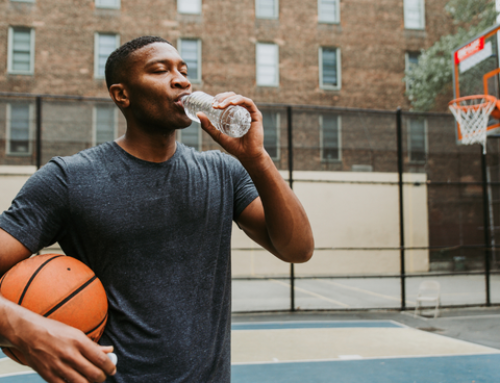Healthy Hydration for Track & Field Athletes
Hydrating properly is one of the easiest ways to prepare for a track & field event. Yet, too often athletes are not hydrated, and their performance suffers.
Athletes do not lead typical lifestyles, so the general guideline of six to eight glasses of water per day does not apply. This is okay if you are not training or competing, but the requirements change when you perform intense activity and lose water and electrolytes through sweat.
Losing as little as two percent of your body weight through sweat can cause cramps, overheating, fatigue, nausea and other performance problems. If you are performing intense activity, like running or working out, for extended periods of time, you are likely to reach that point unless you replenish your fluid stores.
One key to preventing dehydration is never to forget to rehydrate during the day. There’s no excuse for not consistently drinking fluids—even if you don’t have a race or workout. It’s recommended to drink one glass of water or “wet carbs”—like juice—every hour. (Learn how to assess hydration with urine color.)
Pre-race or pre-workout is where sports drinks come into play. These contain electrolytes (like sodium and potassium), which prevent cramps so you can maintain peak performance. Drink 16 ounces around a half hour before activity.
During your race or workout, your body begins to lose fluid through sweat. The trick here is to replenish as much fluid as you lose. To do this accurately, weigh yourself without clothing before and after activity. Drink about 16 ounces for every pound lost. To avoid side stitches and stomach sloshing, try to spread your fluid intake out over the course of your competition.
These recommendations constitute overall guidelines. Weather conditions and other factors will alter your track & field hydration requirements in a given day. Always monitor your hydration to prevent poor performance.
RECOMMENDED FOR YOU
Healthy Hydration for Track & Field Athletes
Hydrating properly is one of the easiest ways to prepare for a track & field event. Yet, too often athletes are not hydrated, and their performance suffers.
Athletes do not lead typical lifestyles, so the general guideline of six to eight glasses of water per day does not apply. This is okay if you are not training or competing, but the requirements change when you perform intense activity and lose water and electrolytes through sweat.
Losing as little as two percent of your body weight through sweat can cause cramps, overheating, fatigue, nausea and other performance problems. If you are performing intense activity, like running or working out, for extended periods of time, you are likely to reach that point unless you replenish your fluid stores.
One key to preventing dehydration is never to forget to rehydrate during the day. There’s no excuse for not consistently drinking fluids—even if you don’t have a race or workout. It’s recommended to drink one glass of water or “wet carbs”—like juice—every hour. (Learn how to assess hydration with urine color.)
Pre-race or pre-workout is where sports drinks come into play. These contain electrolytes (like sodium and potassium), which prevent cramps so you can maintain peak performance. Drink 16 ounces around a half hour before activity.
During your race or workout, your body begins to lose fluid through sweat. The trick here is to replenish as much fluid as you lose. To do this accurately, weigh yourself without clothing before and after activity. Drink about 16 ounces for every pound lost. To avoid side stitches and stomach sloshing, try to spread your fluid intake out over the course of your competition.
These recommendations constitute overall guidelines. Weather conditions and other factors will alter your track & field hydration requirements in a given day. Always monitor your hydration to prevent poor performance.











